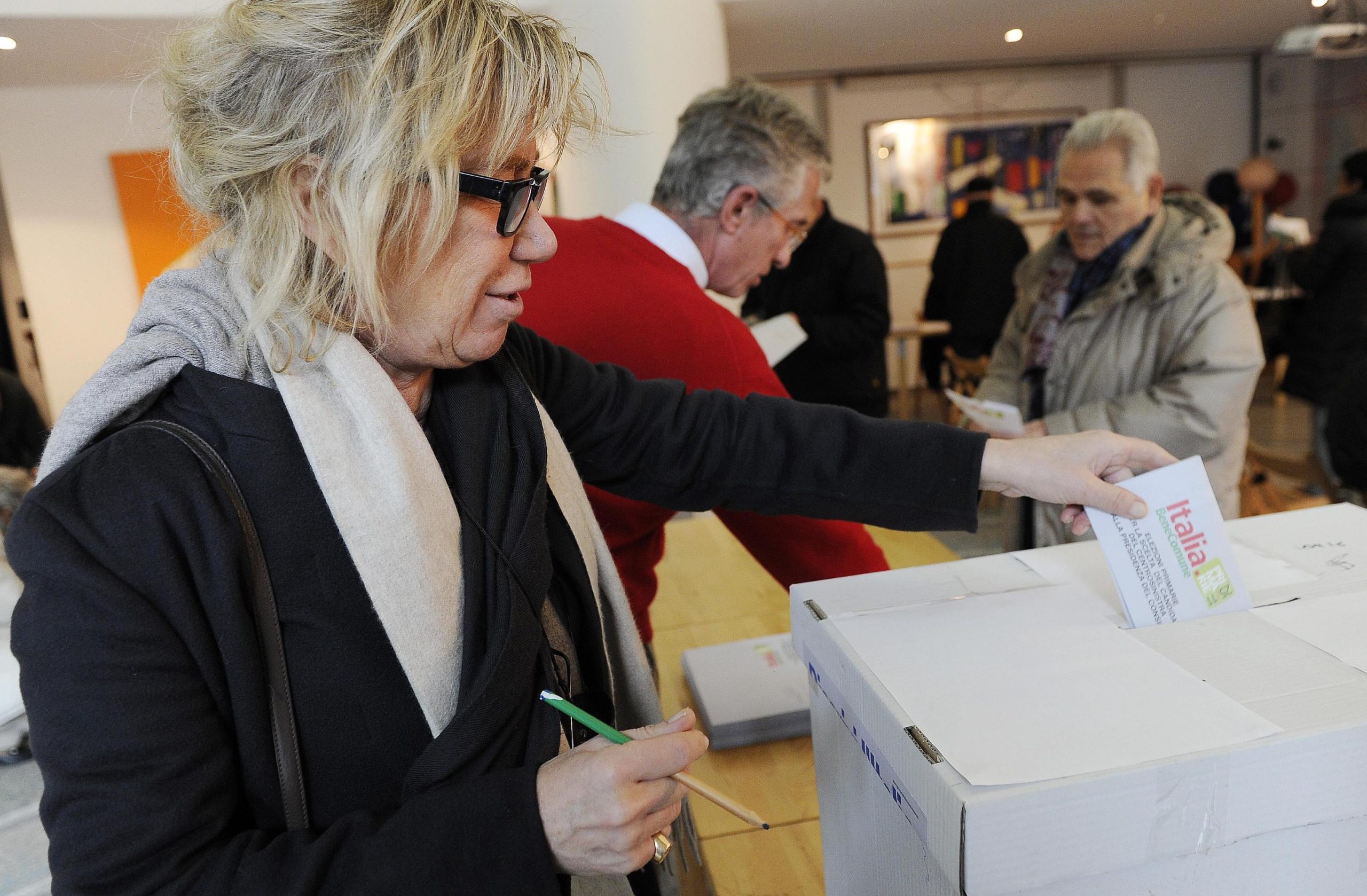Italians will vote on February 24 and 25 after technocratic prime minister Mario Monti resigned in December in the midst of a huge economic crisis that has affected the country over the past five years bringing the official unemployment rate to reach 11 percent, its highest level in eight years.
The outcome of the elections may not be as certain and definitive because of the ruling Italian electoral law (Italian law gives it an automatic boost to 55 percent of the seats in the lower house to the winner while in the upper house – where Italian rules award bonus seats based on regional results – the situation is more open) and because the elections feature over a dozen parties and alliances (three of them main,) nevertheless many citizens will likely abstain because they find no expression in the political parties running.
The electoral campaign has in fact shown how in Italy there is a mounting resentment against the missed renewal of political leadership and the capacity of the parties to offer solutions to the problems of the young generations.
On the economic side, in fact, despite Monti imposed several new taxes and unpopular laws, almost all the parties agreed in principle that Monti’s austerity measures must be continued and intensified.
Below are the leaders and the parties that more likely will sit in the next Italian parliament:.
Elections will probably be won by centre-left alliance (Democratic Party and Left, Ecology and Freedom) headed by Pier Luigi Bersani, currently polling over 30 percent. The Democratic Party has supported Monti’s technocratic government over the past year and Bersani is a veteran of the party but also a very convinced European politician. He won his own party’s primaries in December.
A new “left” party alliance (not part of that led by the Democratic Party) has also been established under the name Rivoluzione Civile (Citizens Revolution,) headed by prosecutor Antonio Ingroia, who has a reputation as a successful anti-Mafia fighter.
Ingroia’s alliance is also supported by the “Italy of Values” party led by former state attorney Antonio di Pietro.
On the right side, after a year approving the measures taken by the Monti government before withdrawing his support in November forcing early elections, is Italy’s former prime minister Silvio Berlusconi, at the head of People of Freedom Party (PDL) .
Berlusconi is the county’s longest serving post-war leader. To help his party regain the lost consent, Berlusconi has agreed a new alliance with the right wing anti- immigration Lega Nord (Northern League) party as well as two far-right parties, La Destra (The Right) and Fratelli d’Italia.
According to the polls Berlusconi (still in the middle of several ongoing trials for economic and sex crimes) is still far behind Bersani’s centre-left alliance. However, things look different in the elections to the upper chamber (the Senate). Here, seats are distributed not according to the national results but are decided regionally.
Since the beginning of the campaign, Berlusconi has been moving further to the right, conducting a right-wing populist election campaign, including attacks on the European Union and the German government, which Monti has often praised.
With very few chances to really succeed and after initial hesitation, the previously non-politic Mario Monti himself has decided to establish his own electoral alliance,”Scelta Civica per l’Italia“. The economics professor/turned politician and former EU Commissioner is being supported by the Christian Democratic Centre Union (UDC), Ferrari’s CEO and former president of the employers’ association Luca Cordero di Montezemolo’s party “Italia Futura”, and Gianfranco Fini, leader of FLI (Future and Liberty for Italy.)
According to recent polls Monti is not going to score a big result but he could ensure a safe majority to Bersani’s centre-left alliance.
Far ahead Monti will istead be the Five Star Movement founded and led by comedian Beppe Grillo. Grillo – the only real surprise of this electorla turnament – has filled the squares of the whole country in the name of the “anti-politics” with tirades against corrupt politicians, the Euro and promises of transparency.
Grillo will bring “common people” to the chambers but he himself is accused of leading the movement in an authoritarian manner.

